As we settled into our Victorian home, we grew increasingly frustrated with the electric fridge's steadfast refusal to die. After a few years of glaring at the anachronistic behemoth looming over our kitchen, we decided to stop waiting and make the switch over to the ice box regardless of the electric fridge's health.
Port Townsend had its own ice works in 1891[1], and most urban dwellers in America during the Victorian period had ice delivered right to their door. Sadly this is no longer an option, so we had to work out a system where Gabriel buys block ice from one of the few stores in our region that still sells it, transports it home in a cooler, then I rush out and help him unload it before it melts.
We started by moving over the condiments, since most of them probably could have sat on our cupboard shelves without any refrigeration at all and been relatively unaffected. The vegetables came next, since they were also relatively shelf stable. A week or so later we moved the eggs, cheese and butter. Seeing no signs of food poisoning after another few weeks we finally moved over the liquid dairy products (milk and cream) and Gabriel's meats. With that, we unplugged the electric refrigerator and awaited developments. When we had been getting along just fine with the ice box alone, we sold the electric fridge. Our milk is actually colder this way than when we were using an electric fridge because we put it (and the meat) right in the same compartment as the ice.
An icebox could come into detective plots in another interesting way as well: Back when ice was delivered, icemen had an interesting role in the community because they made regular deliveries and (unlike the postman or milkman) could actually carry their product right into the house - not necessarily in every case, but certainly if it was a heavy delivery and the woman asked him to. (Our house actually has a separate door directly into the kitchen for deliveries.) Because icemen were muscular, knew all their women customers well and came into the house, there were lots of bawdy jokes about them.) An iceman would be in a unique position to tell detectives if anything was changed or out of the ordinary in a particular kitchen - he would be somewhat familiar with his customer's kitchens, but would have a more neutral perspective than a member of the family.
Because ice boxes and kitchens in general were solidly in women's sphere of technology, a lady detective would think of these things before a male detective did. She would also probably think of interviewing the iceman before it occurred to the male detectives. The iceman would be less suspicious of a lady detective too; since there were so many bawdy jokes about icemen and private detectives were often hired to dig up dirt in divorce / annulment cases, the iceman would probably be immediately on the defensive with a male detective.
The blocks of ice are large (the biggest we can get are 10 lb blocks, but they would have used even bigger ones when it was delivered by icemen. Our ice compartment holds up to 80 lbs; some iceboxes were bigger, some smaller). Every once in a while, there will be a loud CLUNK as the melting of a lower block causes an upper block to fall off of it and shift around. It can be quite startling in an otherwise perfectly quiet house. This morning before sun-up I was at my desk writing when I heard a loud BANG from the kitchen. I've been reading lots of spooky stories lately and my first instantaneous thought was, "Ghost!" then after a split-second of reflection I realized that it was only the ice shifting in the icebox.
[1] "Port Townsend, Wash." North American Review Advertiser, New York, 1891, p. 18.
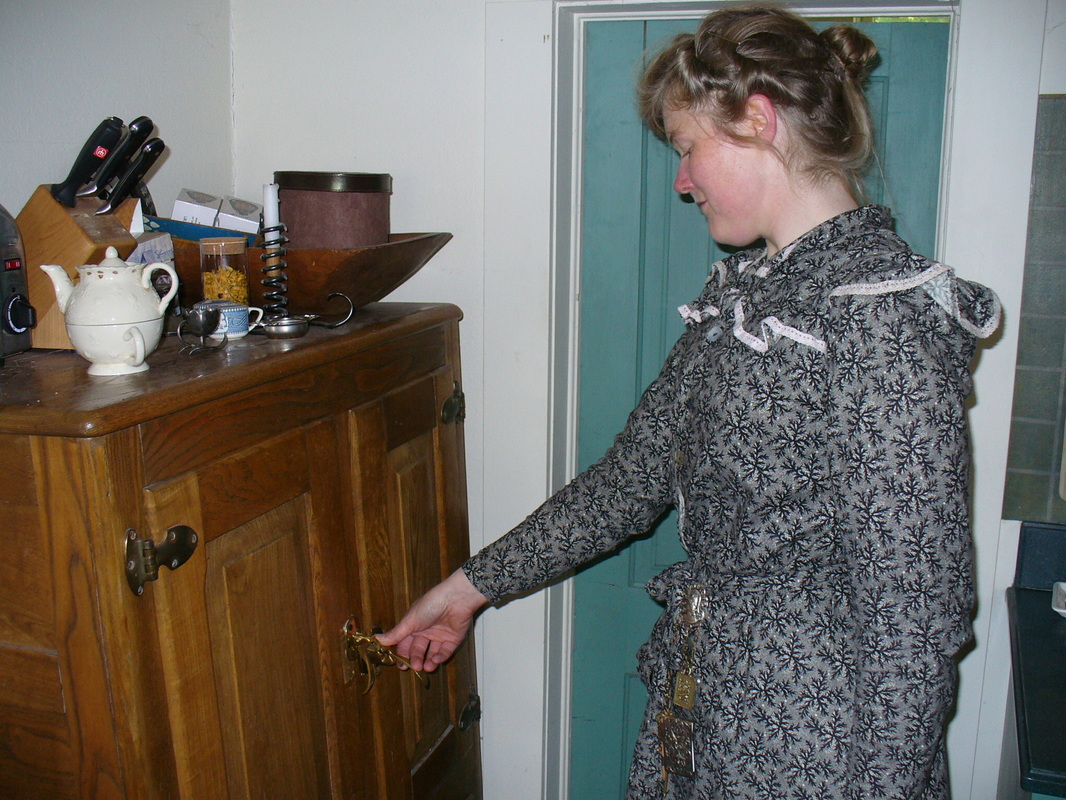
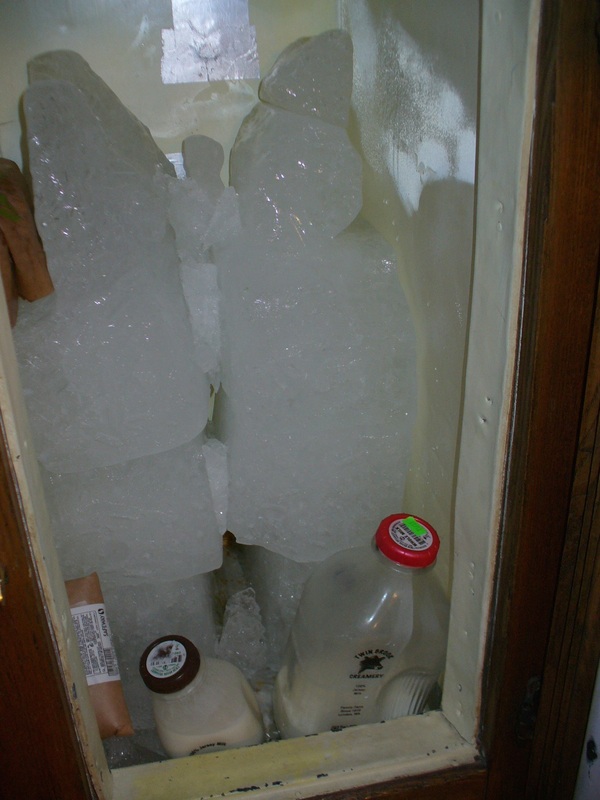
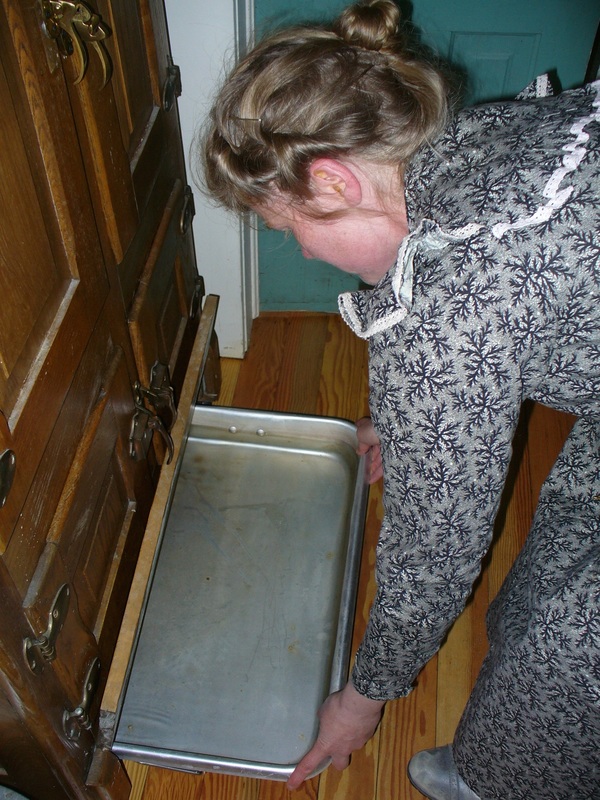
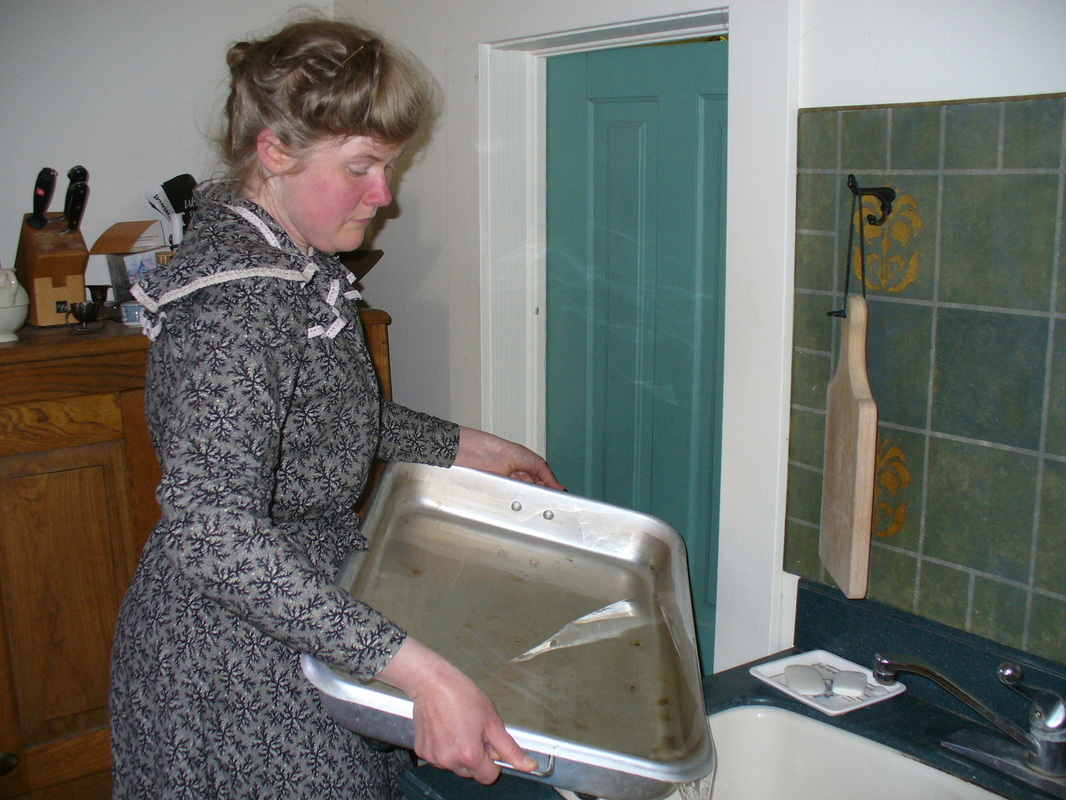
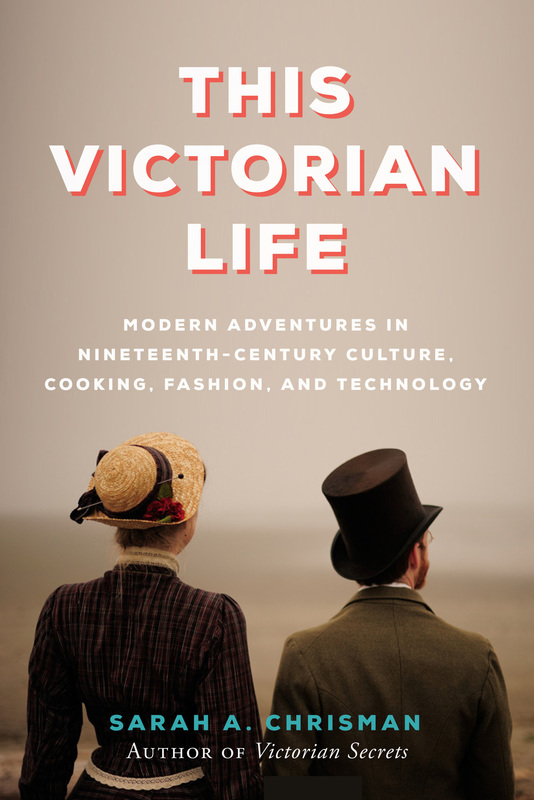
 RSS Feed
RSS Feed